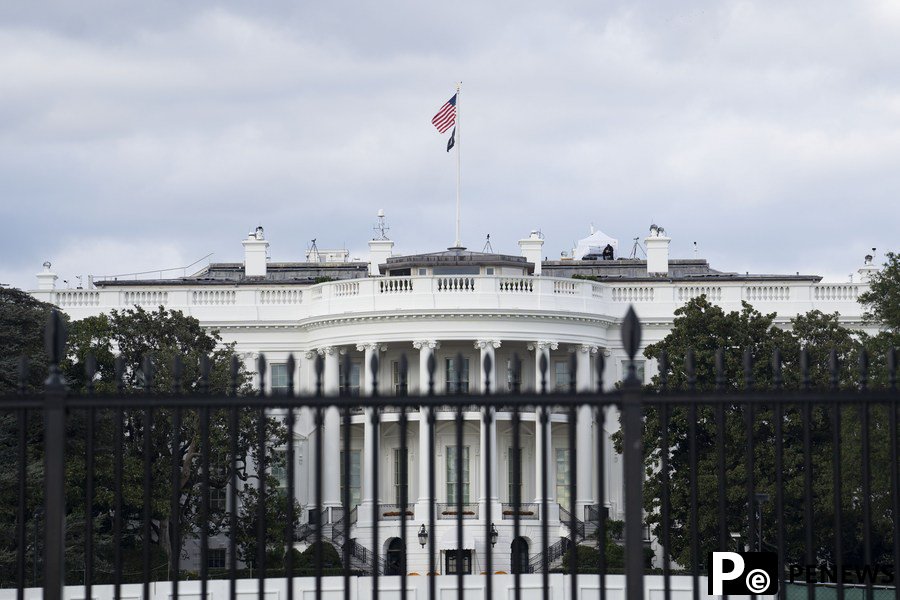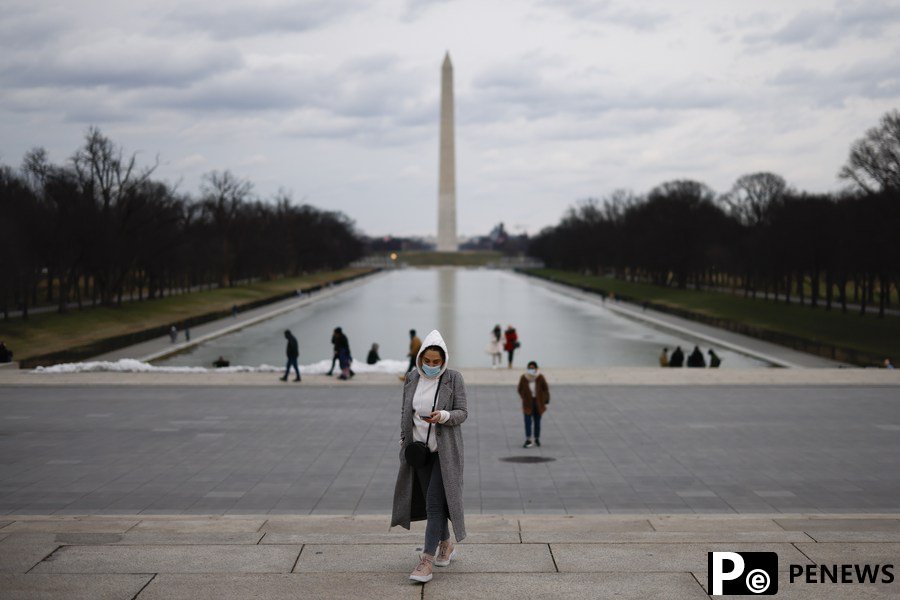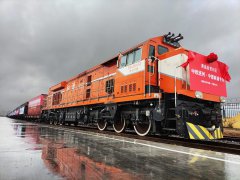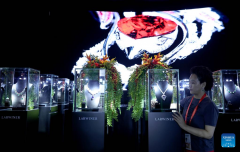Home>>
How amateur U.S. "China experts" stir up hostility(Xinhua) 14:57, January 23, 2022

Photo taken on Oct. 28, 2021 shows the White House in Washington, D.C., the United States. (Xinhua/Liu Jie)
BEIJING, Jan. 23 (Xinhua) -- Understanding one another is a difficult task, whether among citizens or between nations. Misunderstanding occurs as a result of disparities in culture, history, ideology, or political systems.
"But it is essential for our nations (the United States and China) to appreciate the other," said former U.S. President Jimmy Carter in his greeting message to the 2021 Understanding China Conference.
For decades, a group of renowned U.S. China hands, including the late Harvard scholar Ezra Vogel, who helped bridge the United States and East Asia, have dedicated their careers to studying and then introducing China to the American public, so that the two countries could better understand and cooperate with each other.
Unfortunately, the past few years have witnessed how a cohort of charlatans, who claimed to be experts on China, managed to incite hostility towards the Asian country rather than bridging the U.S. understanding gap about it.
CHARLATANS CRAWLING OUT OF THE WOODWORK
A news junkie today could easily lose count of the number of self-proclaimed "China experts" quoted by U.S. news outlets, who either smear China or extol the importance of confronting China in critical fields.
"Throughout the various government administrations, I believe I had a pretty good understanding of who the (China) experts were and who, in fact, was influencing the decision makers," wrote Chi Wang, president of the U.S.-China Policy Foundation who previously served as the head of the Chinese section at the U.S. Library of Congress.
Today, however, individuals who have no qualms over claiming expertise "are crawling out of the woodwork," Wang lamented, warning that it is easy to pretend to be an expert when no one is checking the credentials.
"It seems everyone with a pen, an opinion, and an audience is suddenly somehow an expert on arguably the most complex bilateral relationship in the world," said Wang, also a professor of U.S.-China relations and modern China at U.S. Georgetown University.
Failing to study and comprehend why China's development path fits its national conditions, those "China experts" blatantly attempt to tamper with history by claiming that the U.S. policy of engagement with China had gone under because Washington had failed to "induce change" in it.
Lacking knowledge about how traditional Chinese thoughts including Confucianism came to shape Chinese social interactions, and how human rights operate in China, those "China experts" have relentlessly launched a smear campaign after the Chinese rejected their projection of a Western way of thinking on China.

People visit the National Mall in Washington, D.C., the United States, Jan. 17, 2022. (Photo by Ting Shen/Xinhua)
"I would say the West does not understand China. It makes precious little attempt to try to understand China," Martin Jacques, a well-known British China scholar, said in an interview with Chinese media.
"Because Westerners have been brought up to essentially believe their way of doing things is the exemplar for the rest of the world and the Western paradigm is superior to all others," said Jacques, who until recently was a Senior Fellow at the Department of Politics and International Studies at Cambridge University.
SPECULATORS PUSHING OWN AGENDA
Among those self-proclaimed U.S. "China experts," some are constantly competing for prominence in the field by selectively using texts to push their policy preferences.
In the past years, some U.S. pundits have joined the political and military elites in Washington to peddle the so-called "Chinese military threat" by selectively quoting reports on the Chinese defense budget.
"There is a lot of selective listening going on among American securocrats and pundits, who filter out Chinese explanations of what China is doing and replace these with their own speculation and conjecture about what the Chinese ought to be doing to be able to contend with us for global hegemony," Chas Freeman, the U.S. retired diplomat who served as late U.S. President Nixon's interpreter during his 1972 trip to China, said at a Middle East Policy Council event.
"Without such a threat from China, it is increasingly difficult to justify perpetuation of the huge force structure and defense industrial base we developed to do battle with the USSR," he noted.
Unlike those speculators who sought prominence by deliberately demonizing China's peaceful development, Freeman, also the director for Chinese affairs at the U.S. State Department from 1979 to 1981, sought to understand China's relationship with the rest of the world by studying its rich repository of ancient ideas.
"China is still the homeland of the great strategist, Sunzi, and it takes seriously his insight that the best wars are those that are never fought," he said.










